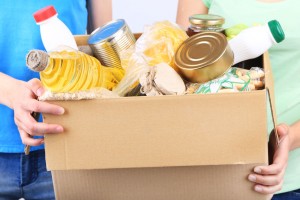 It’s that time of year again, when so many Americans find it in their hearts to donate food so that others in their community can enjoy a hearty holiday meal. If you donate food this season, the last thing you want is to find out that your charitable contributions made someone sick, or worse. It only takes a little knowledge and a little more effort to avoid donating dangerous and potential deadly food.
It’s that time of year again, when so many Americans find it in their hearts to donate food so that others in their community can enjoy a hearty holiday meal. If you donate food this season, the last thing you want is to find out that your charitable contributions made someone sick, or worse. It only takes a little knowledge and a little more effort to avoid donating dangerous and potential deadly food.
Canned Goods
Canned goods are a convenient and popular option for food donations. You may have some on-hand that your family is not going to use, or maybe you want to contribute your own hand-made canned food. Either way, be mindful of canned food safety when choosing this option. Never donate canned goods that are:
- Bulging
- Rusted
- Deeply dented
- Leaking
- Recalled
You can quick check for recalls online. Also, be aware that many organizations cannot accept home-canned goods at all due to safety concerns.
Other Foods and Pet Food
If you are donating other food items, such as rice, pasta, stuffing, and powdered milk, or pet food, the same basic principles apply:
- Again, you want to check for recalls.
- Check the expiration dates, but talk to the organization you plan to donate to. Some will accept foods that are slightly past the expiration or “best by” date.
- Do not donate foods that have been opened or have packaging that is breached.
Homemade Food
There fewer outlets for homemade food donations, but you may be participating in a local event that allows volunteers to bring in homemade food or maybe you are making food to give directly to a family in need. If so, be sure to follow safe food-handling practices, including safe storage and transportation of any homemade foods.















